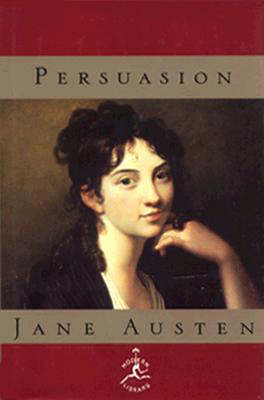Reviewed by brokentune on
When I first read Persuasion, I must have been out of my mind, preoccupied, or distracted with something because how else could I not have enjoyed this book back then as much as I have enjoyed it now?
Austen's last book is a masterpiece of subtlety and quiet power.
Anne Elliot is not as fierce or outspoken as my other favourite Austen heroines but she is such an awesomely strong character in her own way. She knows her own mind but also takes on advice from others. This ability be persuaded is, of course, at the heart of this story, and Austen plays with the concept of persuasion throughout the book - culminating in a debate between Anne and Captain Harville over whether men or women suffer longer after the loss of love. A debate which is overheard and influences a letter that within Austen's works is eclipsed only be the declarations of Mr. Darcy in Pride and Prejudice.
There are a number of elements in this story that are similar to Austen's other books - the focus on women in Georgian society being confined to their roles as wives and daughters, the class snobbery, the importance of reputation, financial mismanagement, the plotting of romantic entanglements for position and wealth.
Austen pokes fun and she admonishes -
Men have had every advantage of us in telling their own story. Education has been theirs in so much higher a degree; the pen has been in their hands. I will not allow books to prove anything.
She does it quietly, by implication more often than by expressing it in words. It's a subtlety that needs some focus to absorb it, but that is ever so rewarding.
Despite this, Persuasion for me will also be the book I will remember for Jane Austen calling an off-page character a ...
He had, in fact, though his sisters were now doing all they could for him, by calling him “poor Richard,” been nothing better than a thick-headed, unfeeling, unprofitable Dick Musgrove, who had never done anything to entitle himself to more than the abbreviation of his name, living or dead.
Reading updates
- Started reading
- 28 January, 2018: Finished reading
- 28 January, 2018: Reviewed
- Started reading
- Finished reading
- 28 January, 2018: Reviewed
